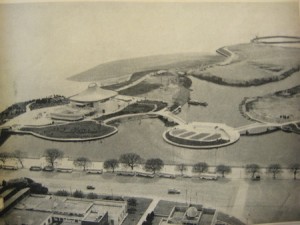 Alex Galarza, a PhD student in history at Michigan State University and co-founder of the Football Scholars Forum, has been awarded the João Havelange Research Scholarship. This prestigious award is administered jointly by FIFA and CIES (Centre International d’Etude du Sport), an independent research center created in 1995 by the governing body in collaboration with the University of Neuchâtel, and the City and State of Neuchatel, Switzerland.
Alex Galarza, a PhD student in history at Michigan State University and co-founder of the Football Scholars Forum, has been awarded the João Havelange Research Scholarship. This prestigious award is administered jointly by FIFA and CIES (Centre International d’Etude du Sport), an independent research center created in 1995 by the governing body in collaboration with the University of Neuchâtel, and the City and State of Neuchatel, Switzerland.
Galarza’s project is titled “Between Civic Association and Mass Consumption: The Soccer Clubs of Buenos Aires.” It explores how clubs developed as both centers of mass spectacle and sites of everyday urban sociability. Club members and officials used political connections to secure city space and public subsidies for stadiums and the overall success of their professional teams. While clubs became centers of patronage and spectacle, they were also non-profit civic associations central to social and cultural activities in the city. Clubs provided educational facilities, libraries, leisure space, and political forums for their members.
Galarza’s research examines the tensions within football clubs during the mid-twentieth century, an era when Argentine society entered a period of deep economic and political changes following the ouster of Juan Domingo Perón in 1955. Perón’s project aimed at developing a new kind of citizen and civic culture in which the popular classes would have a greater political voice and heightened access to new forms of mass consumption. Mass political participation and consumption remained critical and unresolved tensions during the democratic and military governments that followed. One powerful example of how soccer clubs gave shape and meaning to civic engagement, popular spectacle, and mass consumption is Boca Juniors’ Ciudad Deportiva (in photo above). This failed project was a mix between a stadium complex and amusement park, built over seven artificial islands on sixty hectares of land filled in the Rio de la Plata.
Click here to read a digital version of Galarza’s preliminary work on the fascinating history of the Ciudad Deportiva.
Check back with us for an interview with Galarza in the coming days.
Tag: FIFA
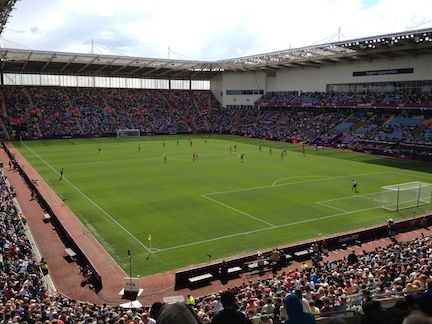
Guest Post by Chris Bolsmann (c.h.bolsmann [at] aston [dot] ac [dot] uk)
After the disappointment of Banyana Banyana’s loss to Sweden (read my post here), I looked forward to the Opening Ceremony of the London Olympic Games and the parade of athletes in particular. The three hour spectacle turned out to be full of contradictions. Danny Boyle provided a fascinating, although selective, history of Britain. He paid homage to the Suffragettes, the National Health Service and immigrants from the West Indies among others, although no reference was made to either slavery or colonialism. I particularly enjoyed his musical selection which included The Jam, Sex Pistols, and The Specials. Watching excited athletes entering the Olympic Stadium can be fun and I was heartened to see Caster Semenya carrying the South African flag.
The lack of visible corporate sponsorship in the stadium and at all Olympic venues is really pleasing to a sports fan’s eye. What a stark contrast to the 2010 World Cup in South Africa where FIFA’s corporate sponsors were visible everywhere. I have yet to come across the Olympics “brand police,” unlike in South Africa where fans wearing Orlando Pirates and Kaizer Chiefs replica shirts emblazoned with the Vodacom sponsor were told to cover them up because MTN — a rival telecom firm — was a national FIFA corporate partner.
Despite the International Olympic Committee’s apparent subtlety, one just has to turn over any Olympic Ticket and the IOC’s “Worldwide Olympic Partners” are clearly visible. The usual suspects appear: unhealthy soft drinks, measly hamburgers and the like, but also a multinational chemical company. Athletes seem unhappy with the restrictions placed on them under the IOC’s Rule 40 protecting official sponsors from “ambush marketing.” Given that athletes can even be disqualified for promoting their individual sponsors, South African swimmer Cameron van der Burgh, Africa’s first gold medal winner, must be cautious since he endorses a range of corporate sponsors on his twitter account which are not “Worldwide Olympic Partners.”
So despite the veneer of a corporate-free Olympic Games, the sponsors and their logos are everywhere. Fizzy soft drinks are even sold as “healthy food” alternatives inside Coventry City’s Ricoh Arena, which has been temporarily renamed the “City of Coventry Stadium” for the Games because the Japanese electronic giant is not an official partner of the IOC. Even the toilets are not safe from the IOC’s attempt at cleansing all traces of rival sponsors. The toilet cisterns and hand dryers have their manufacturer’s names covered up!
I got to watch a double header in this sanitised stadium yesterday as Mexico beat Gabon and South Korea defeated Switzerland. At £20 for a ticket, this represented genuine value for money. Match tickets are cheaper than what Coventry City FC charge in the 3rd tier of English football. The 32,000 seater arena was almost full with 28,000 spectators filling the stands. The empty seats, unfortunately, were the best seats available, those on the half way line behind both substitutes’ benches. According to the IOC, these were seats reserved for their “Worldwide Olympic Partners.” A shame. Besides the fans of the teams on the pitch, there were many families with young children, helped by cheaper youth ticket prices and the Sunday afternoon kickoff time.
As much as I wanted Gabon to silence the Mexican fans’ homophobic chants during opposing goalkeepers’ goal kicks, El Tri were undeniably stronger than their West African counterparts. In an evenly contested first half, Mexico had a couple of good opportunities, but Didier Ovono in the Gabonese goal was equal to the task. The introduction of Giovani dos Santos in the second half gave the Mexicans more creative options up front and he latched onto a long ball in the 62nd minute to put Mexico in front. Giovani sealed the game in the 90th minute after Gabon conceded a late penalty.
Football at the Olympics is different from the World Cup. The kits are different as the German manufacturer is not permitted to advertise their stripes. Football federation logos are replaced by national Olympic associations And for the men, 15 of the 18 members of the team are under 23 years of age. But one just has to look to the corner flags where FIFA has printed its logo and up to the official flags where the IOC’s flag hangs next to that of FIFA. In the end, the corporate interests of the IOC and FIFA merge.
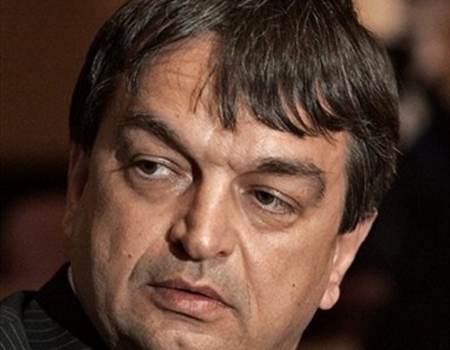
By Andreas Selliaas in Norway (translated by Pelle Kvalsund)
The day after. Sunday 15 January, 2012, I received an email from the former director of FIFA’s international operations, Jerome Champagne. Receiving the e-mail on that particular Sunday was a bit odd since I had been to a champagne party the night before and the desire for something that had to do with champagne was very minimal. Attached to Mr. Champagne’s e-mail were three documents: a 25-page memo on how Champagne wants to reform FIFA, a press release from FIFA in 2010 on Champagne’s departure from FIFA, and a newspaper article from Le Monde the week before where Champagnes outlines the main points in the lengthy memo. The same e-mail was sent to all 208 members of FIFA and people attending the Play the Game conference in Cologne in October 2011. The memo is interesting in several respects.
Kick Blatter Out

A must-have t-shirt that riffs off the brilliant Kick it Out campaign, courtesy of our friends at Philosophy Football. “From vote-rigging to covering-up corruption, via advocating tight-fitting kits for women footballers, selling the game short to sponsors and now fighting racism with a handshake. It’s surely time for Blatter to go.”
Get yours here.
FIFA Bribes on Video: The Jack Warner Files
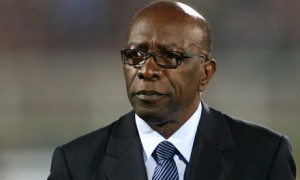
The Daily Telegraph web site posted video evidence of Jack Warner, former CONCACAF president and FIFA vice-president, explaining Mohammad Bin Hammam’s cash-for-votes scheme at a Caribbean Football Union meeting in March 2011. “If you are pious then go and build a church,” he tells the audience.
Short version of the video here, long version here
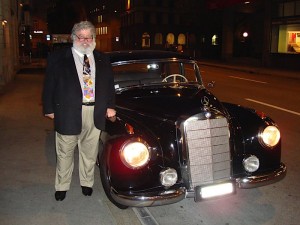
Chuck Blazer, the American General Secretary of CONCACAF, announced he is leaving his post at the end of the year, but will remain on FIFA’s Executive Committee. Blazer, 65, has been milking football for his personal profit and pleasure under the tutelage of CONCACAF and FIFA godfather Jack Warner for two decades. In the build up to the FIFA presidential election earlier in the year, Blazer blew the whistle on a cash-for-votes scheme that led to Blatter being reelected unopposed.
In August, it was also revealed that Blazer was under FBI investigation for tax evasion. Investigative reporter Andrew Jennings — the bane of FIFA crooks’ existence — has written about Blazer’s world of offshore accounts and football-funded lavish lifestyle. “His confidential contract reveals that he hires himself out from his Cayman-based company Sportvertising,” Jennings writes. “It also reveals that he pockets 10% in ‘commissions’ from regional football marketing deals. Last year he picked up nearly $2 million and over the last five years has taken $9.6 million. The sums are recorded in Concacaf accounts – which are not made public – under the heading of ‘Commissions’ – but with no indication he received them.”
A former CONCACAF employee in New York blogged in May about going out with Blazer to strip clubs in Manhattan. The General Secretary treated himself and his staff to “food, strippers, dancers, and massages” paid with “an American Express Card, with CONCACAF and Blazer’s name on it. [. . .] That’s what the General Secretary and Treasurer of CONCACAF, the FIFA Executive from North America, spent the region’s money on . . . regularly,” wrote Mel Brennan.
For Sunil Gulati, US Soccer president, however, “Chuck’s contributions to the sport over the last 30 years are unparalleled. All of us in Concacaf owe him a great debt of gratitude for his sustained efforts in helping to take the sport to where it is today. There is no doubt that he will continue to make an impact in whatever role he chooses.” For the good of the game: the saga continues.
2014 World Cup Draw: Fans Protest in Rio
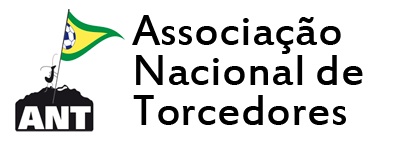
The 2014 World Cup officially got underway today with the qualifying draw in Rio de Janeiro. Simultaneously, the Associação Nacional dos Torcedores de futebol (ANT, the National Association of Football Supporters) organized a demonstration against the World Cup (and the 2016 Olympics). ANT’s call to protest read thusly:
Do you think that the World Cup belongs to us?
Our government continually says that the World Cup and Olympics will bring benefits to Rio de Janeiro and Brazil. But who will benefit? The cost of living and rent are continually on the rise, families are forcibly removed from their homes and street vendors are prevented from working.
More: they are wasting public money on all of these projects and have put forward a law that will hide how much they have spent. To make things worse, the organizers of the World Cup, FIFA and Ricardo Teixeira (the president of the Brazilian Football Federation), are being accused of corruption by multiple sources.
Everything indicates that the World Cup and Olympics are going to repeat, on a larger scale, the history of the 2007 Pan American Games: misappropriation of public funds, unnecessarily large construction projects that become useless after the competition, benefits only for large businesses whose owners are friends of those in power and the violation of the human rights of millions of Brazilians.
The forced removal of families affected by these projects is happening in an arbitrary and violent manner. This situation has already been denounced by the United Nations. Mega-events are being used to install a State of Exception, with the systematic violation of the rule of law.
In this vein, what will be the legacy of the mega-events? The privatization of the city, of health and education? The gentrification of football culture and its stadiums? That private companies will reap profit and benefits with exemptions from taxation and subsidized loans? The profits from the World Cup will be for entrepreneurs, and the debt will be ours. Are we going to allow the mega-event histories of Athens 2004 and South Africa 2010 to repeat themselves?
Join us! Together we will change this trajectory, come and fight! Come kick a ball around with us at the Largo do Machado, the 30th of July beginning at 10am.
Zero evictions!
The city is not merchandise to be bought and sold!
No to the privatization of land and public resources, airports, education and health care!